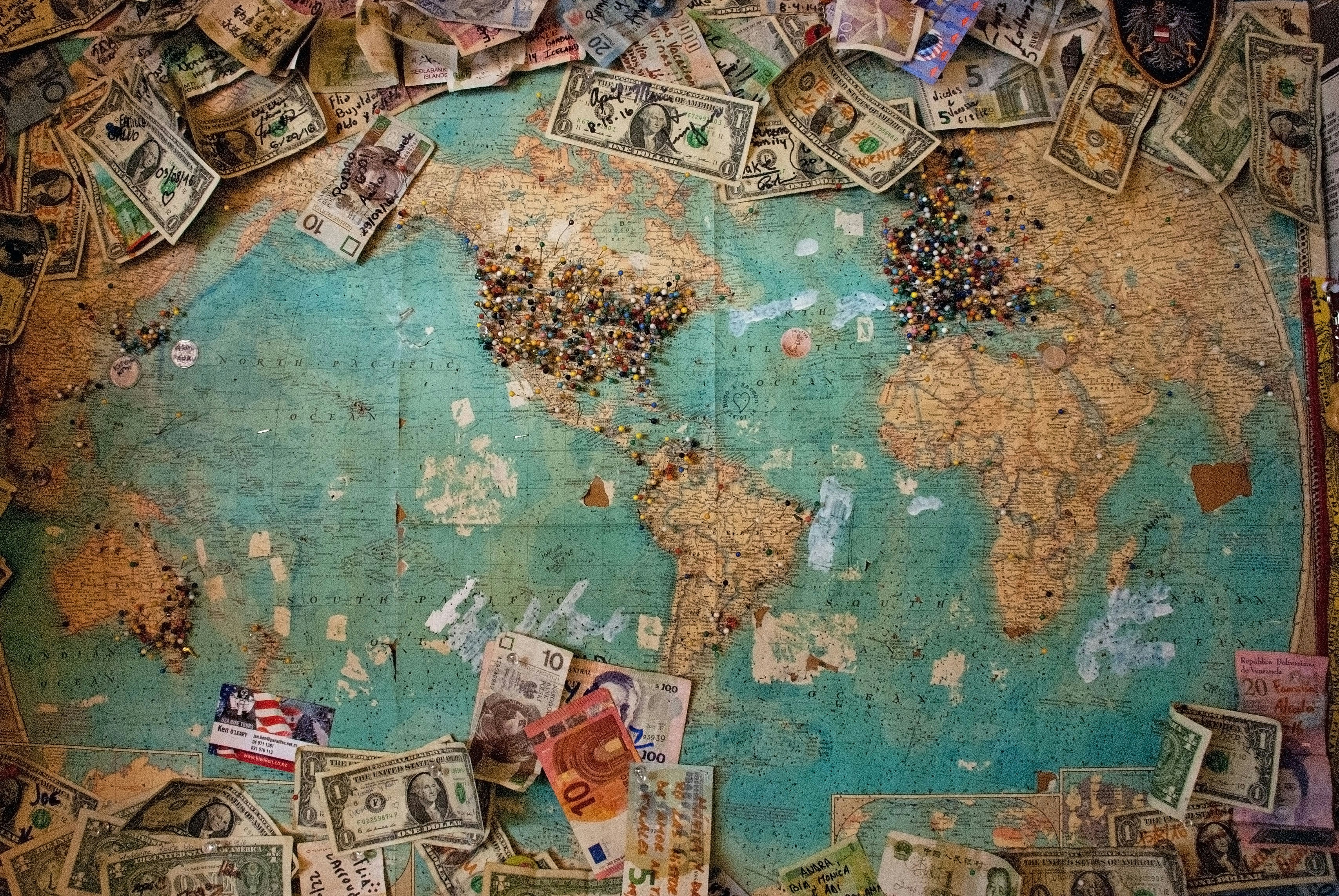Bartering for Travel Experiences: The Hidden Economy to Save Big
Traveling can often feel like a financial battle, with soaring costs threatening to put a dent in our itineraries. But what if I told you there’s a secret way to unlock incredible experiences while saving loads of cash? That's right—welcome to the hidden economy of bartering for travel experiences. This fascinating approach not only enriches your travel journey but adds a personal touch that frequently gets lost in the hustle and bustle of modern tourism. In this guide, we'll explore the art of barter, revealing actionable tips to help you travel smarter and cheaper.
The Essence of Bartering: What Is It?

At its core, bartering is the exchange of goods or services without using cash. Think of it as a trade-off where each party offers something of value in return for what they need. For travelers, this can translate to swapping skills, experiences, or even items for unique local experiences. Fancy a cooking class in Thailand? How about offering to teach English or share insights about your home country?
The beauty of bartering lies in its personalized nature. You get to engage with locals on a deeper level, making your adventure richer and more memorable. The question is—how do you start?
The Psychology Behind Bartering

Bartering taps into our fundamental social nature. Most people have something to offer, even if it’s intangible. By engaging in barter, you create a connection, nurture relationships, and build trust, making your travel experience not just about the sights but also the bonds you create.
For example, a traveler may ask a local artist if they can exchange a service—like social media marketing tips—for a guided tour of the city’s artistic enclaves. Such exchanges often lead to unique experiences that typical tourists miss out on.
Identifying What You Can Offer

Before you set off on your adventure, spend some time reflecting on your unique skills and assets.
Skills to Consider

-
Language Proficiency: Can you speak English, Spanish, or Mandarin fluently? Many locals might trade for an English conversation practice session.
-
Cooking Skills: Are you a kitchen wizard? Offering to cook a meal in exchange for tips on local dining spots can be incredibly rewarding.
-
Photography: If you have a knack for photography, consider offering a mini photo shoot in exchange for guided tours or other local experiences.
-
Web Skills: Design websites or manage social media? Local businesses might appreciate some help in promoting their ventures.
Tangible Items That Can Be Traded

Bartering doesn't have to be limited to skills; consider what items you might carry that could be of value:
-
Travel Souvenirs: Unique items from your home country can pique interest and lead to great exchanges.
-
Clothing: If you have extra clothes or accessories you no longer need, they could appeal to locals.
-
Tech Gadgets: A portable charger or a quality pair of headphones may draw interest, especially from fellow travelers.
Where to Barter Successfully

Not all locations are ripe for bartering. Here are some ideal settings for finding fruitful exchanges:
Local Markets

Markets are bustling with activity and offer an excellent opportunity to engage with local vendors. Many market sellers are open to trade, especially if you bring something unique that piques their interest.
Hostels and Backpackers’ Hubs

These places often attract like-minded travelers who may be interested in skill-swaps, joint excursions, or accommodation exchanges.
Workshops and Classes

Some classes, like cooking or crafting, may allow for barter opportunities. Propose a trade-off, and you might be surprised at the flexibility of the instructors.
Online Platforms and Social Media

Websites such as Couchsurfing or even Facebook groups often have dedicated communities where members can offer or request services. Engaging in these communities may lead to valuable bartering opportunities.
The Benefits of Bartering While Traveling

-
Cost-Effective: Bartering can significantly reduce your travel expenses, allowing you to allocate funds toward experiences that matter most to you.
-
Cultural Exchange: Engaging in barter creates an opportunity for meaningful interactions, helping to foster a better understanding of local customs and trends.
-
Creating Unique Connections: Unlike traditional service transactions, bartering brings a human touch to the experience, often resulting in lasting friendships.
-
Personalized Travel Experiences: Barter often leads to unique, local experiences that are tailored to your interests, unlike generic tourist offerings.
Challenges and Considerations in Bartering

While bartering can be liberating, it’s essential to be aware of its challenges:
Knowing the Right Time to Barter

Bartering may not be suitable in every situation—luxury hotels and restaurants typically don’t entertain the idea. Knowing when and where to barter is crucial for success.
Cultural Sensitivity
Cultural norms differ widely; what’s acceptable in one country might be frowned upon in another. Before attempting to barter, take a moment to observe local customs and practices.
Real-Life Bartering Success Stories
Consider Anna's experience in Bali. She managed to secure a week’s stay at a guesthouse in exchange for running social media marketing workshops—allowing the owners to attract more guests. Not only did she save money, but she also gained invaluable local insights and lasting friendships.
Similarly, Alex, who is an art enthusiast, offered to paint a mural in a café in exchange for a few free meals and accommodations. The café not only benefited from his artwork but also received word-of-mouth promotion in the local community.
Resources for Learning More about Bartering
To deepen your understanding of bartering and its potential, consider exploring resources, such as:
- The Harvard Business Review, which often has insightful articles on negotiation and value exchange.
- Moz provides valuable insights on creating fair trade and value assessments in various contexts, which can be applicable to bartering.
Next Steps: Start Bartering for Your Next Adventure
Ready to dive into the hidden economy of bartering and transform your travel experiences? Here are some practical tips: - Plan Ahead: Before your trip, take note of your skills and the unique offerings you might barter. - Research Local Customs: Equip yourself with knowledge of bartering norms in your destination. - Practice Your Pitch: Prepare to explain what you'd like to trade and what you're looking to receive in return. - Stay Open-Minded: Approaching new interactions with flexibility will help you seize unexpected bartering opportunities.
By incorporating bartering into your travel strategy, you’ll save money, gain unique experiences, and create lasting connections with those you meet along the way. The hidden economy awaits—embrace it, and let it lead you to unforgettable adventures!
Final Thoughts
Bartering for travel experiences not only helps you save money but also enriches your journey through the meaningful interactions you create along the way. By identifying your unique skills and finding the right opportunities, you can turn every trip into a symphony of shared value. The hidden economy is truly a treasure trove waiting for savvy travelers like you to explore. So, pack your bags, hone your barter skills, and get ready to embark on your most rewarding travel experience yet!



